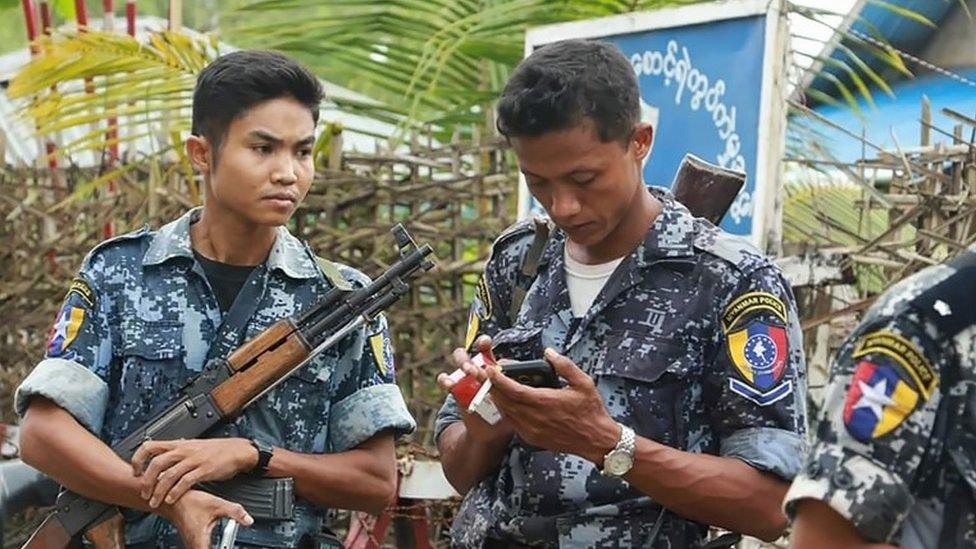Rohingya Myanmar: Nobel winners urge action over 'ethnic cleansing'
- Published
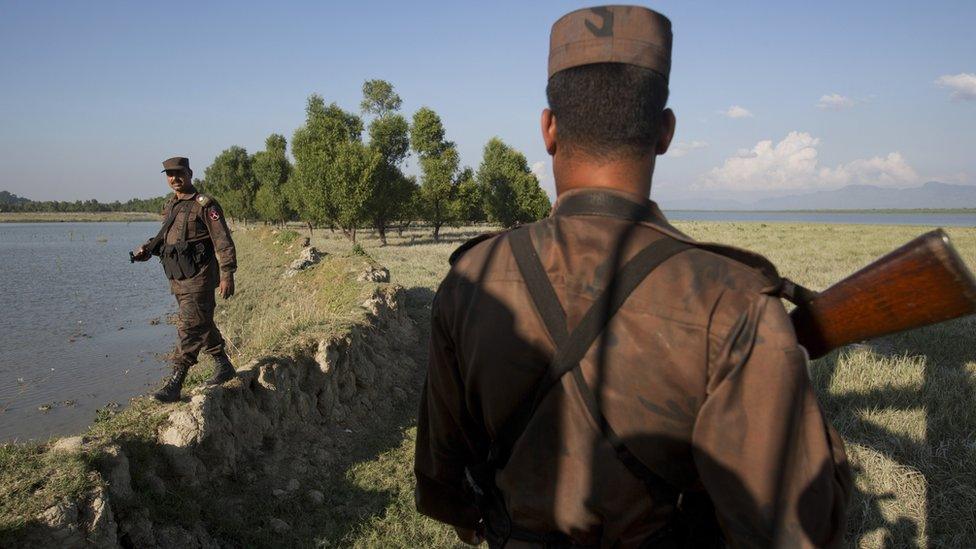
At least 86 Rohingya have been killed and more than 34,000 forced to flee military operations
Eleven Nobel peace prize winners have urged the UN to "end the human crisis" of Myanmar's Rohingya Muslims in a letter criticising Aung San Suu Kyi.
In the open letter, the group said the government crackdown on the population amounted to "ethnic cleansing".
More than 34,000 Rohingya have been forced to flee military operations in Rakhine state, according to the UN.
Ms Suu Kyi, Myanmar's de facto leader, is accused of failing to protect the minority group.
"A human tragedy amounting to ethnic cleansing and crimes against humanity is unfolding in Myanmar," the group, which includes South Africa's Archbishop Desmond Tutu and Pakistani activist Malala Yousafzai, wrote in a letter to the UN Security Council.
"If we fail to take action, people may starve to death if they are not killed with bullets," it added.
The group, consisting of Nobel laureates, politicians, philanthropists and activists, said it was "frustrated" that Ms Suu Kyi, herself a Nobel laureate, "has not taken any initiative to ensure full and equal citizenship rights of the Rohingyas".
At least 86 people have been killed in operations in Rakhine state, launched after armed militants attacked border posts in Maungdaw on 9 October, killing nine policemen.
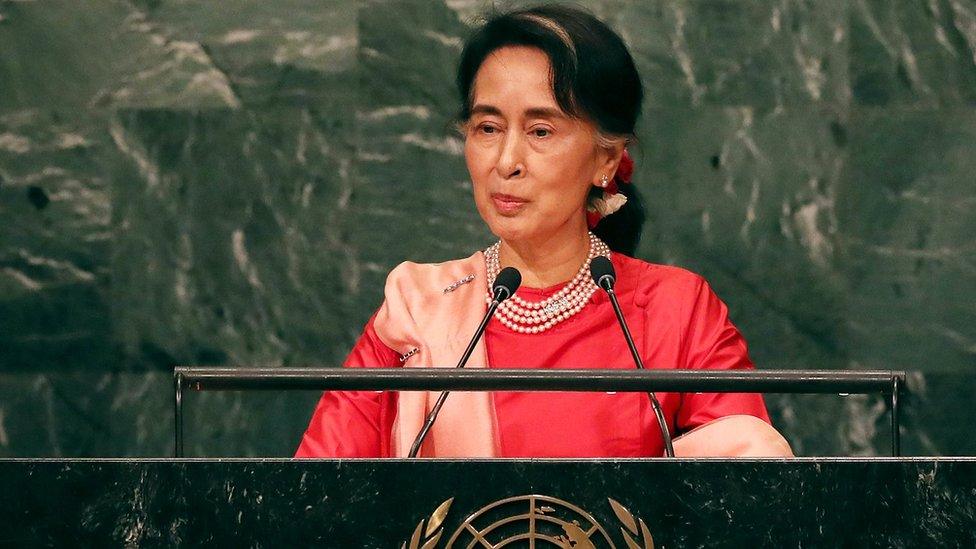
Aung San Suu Kyi has been criticised for failing to protect the Rohingya population
Earlier this month the government of Myanmar was criticised by the UN over its treatment of the minority Rohingya Muslim population.
Myanmar's government said it was conducting counter-terrorism operations in the region and has denied reports of killings and other abuses.
Most of the displaced Rohingya have fled across the border into Bangladesh.
On Friday, director general of Myanmar's ministry of foreign affairs, Kyaw Zaya, told Reuters news agency that Myanmar recognised that 2,415 of its citizens were in Bangladesh, adding that they were welcome to return.

Who are the Rohingya?
The estimated one million Muslim Rohingya are seen by many in mainly Buddhist Myanmar as illegal migrants from Bangladesh. They are denied citizenship by the government despite many having lived there for generations.
Communal violence in Rakhine state in 2012 left scores dead and displaced more than 100,000 people, with many Rohingya still remaining in decrepit camps.
They face widespread discrimination and mistreatment.
Hundreds of thousands of undocumented Rohingya are estimated to live in Bangladesh, having fled Myanmar.
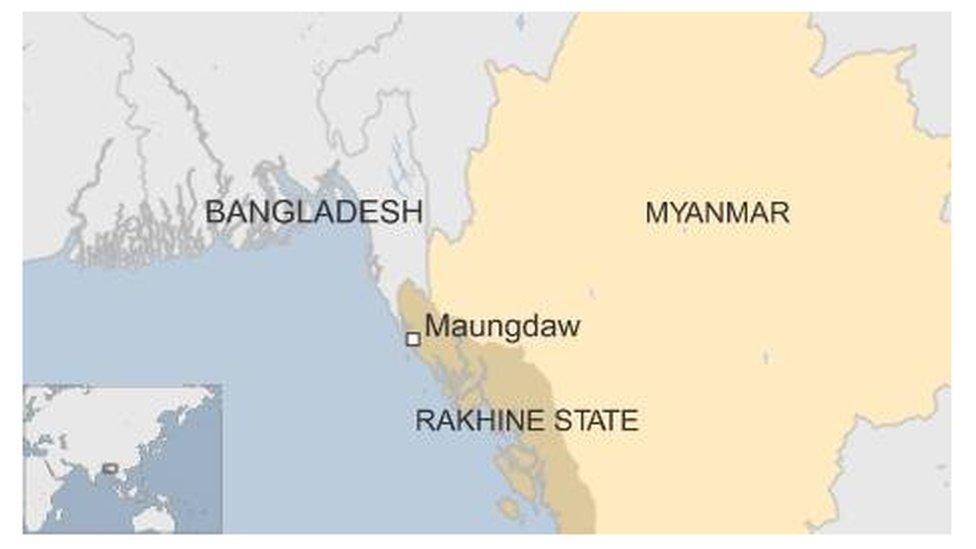

- Published16 December 2016
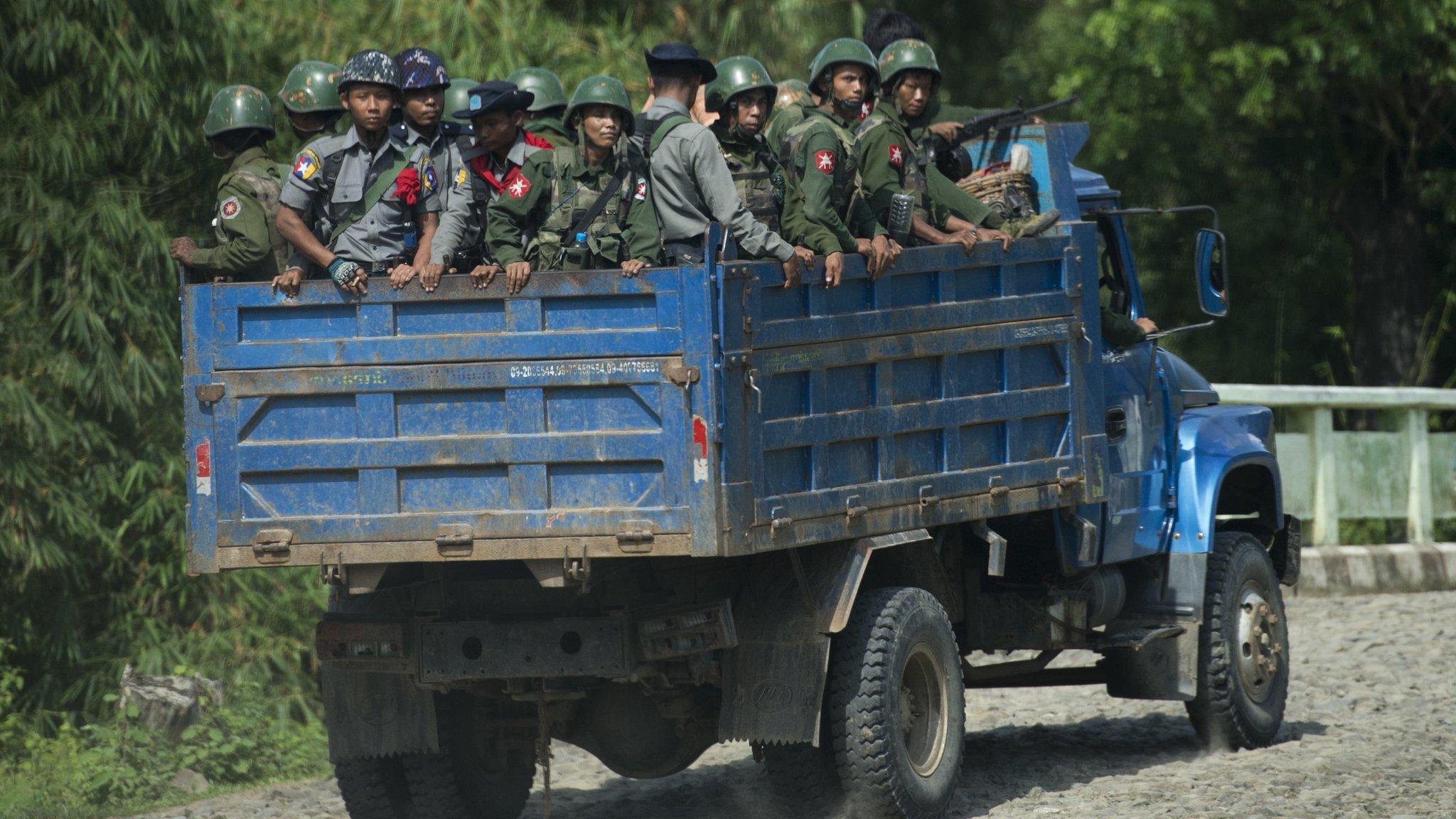
- Published6 December 2016
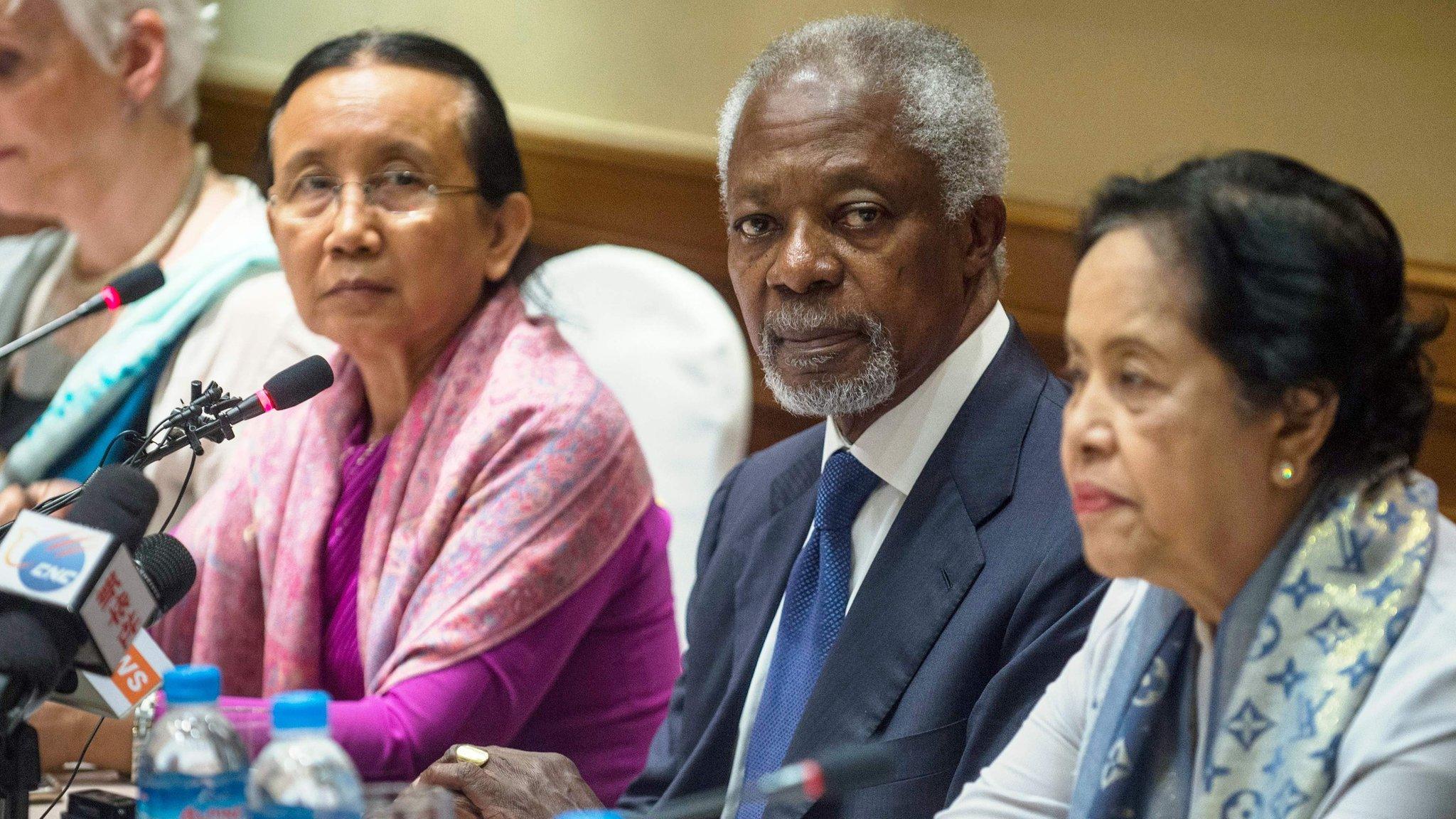
- Published10 January 2017
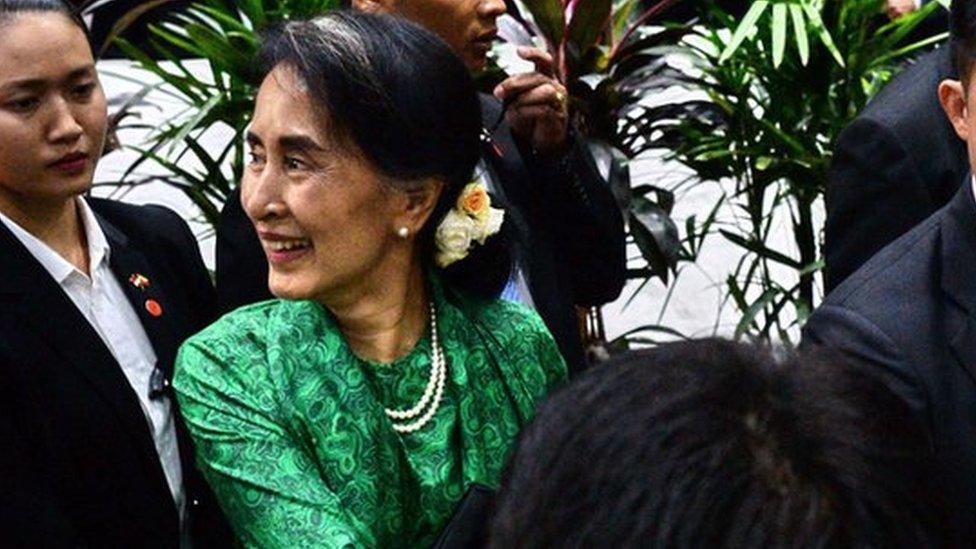
- Published12 October 2016
